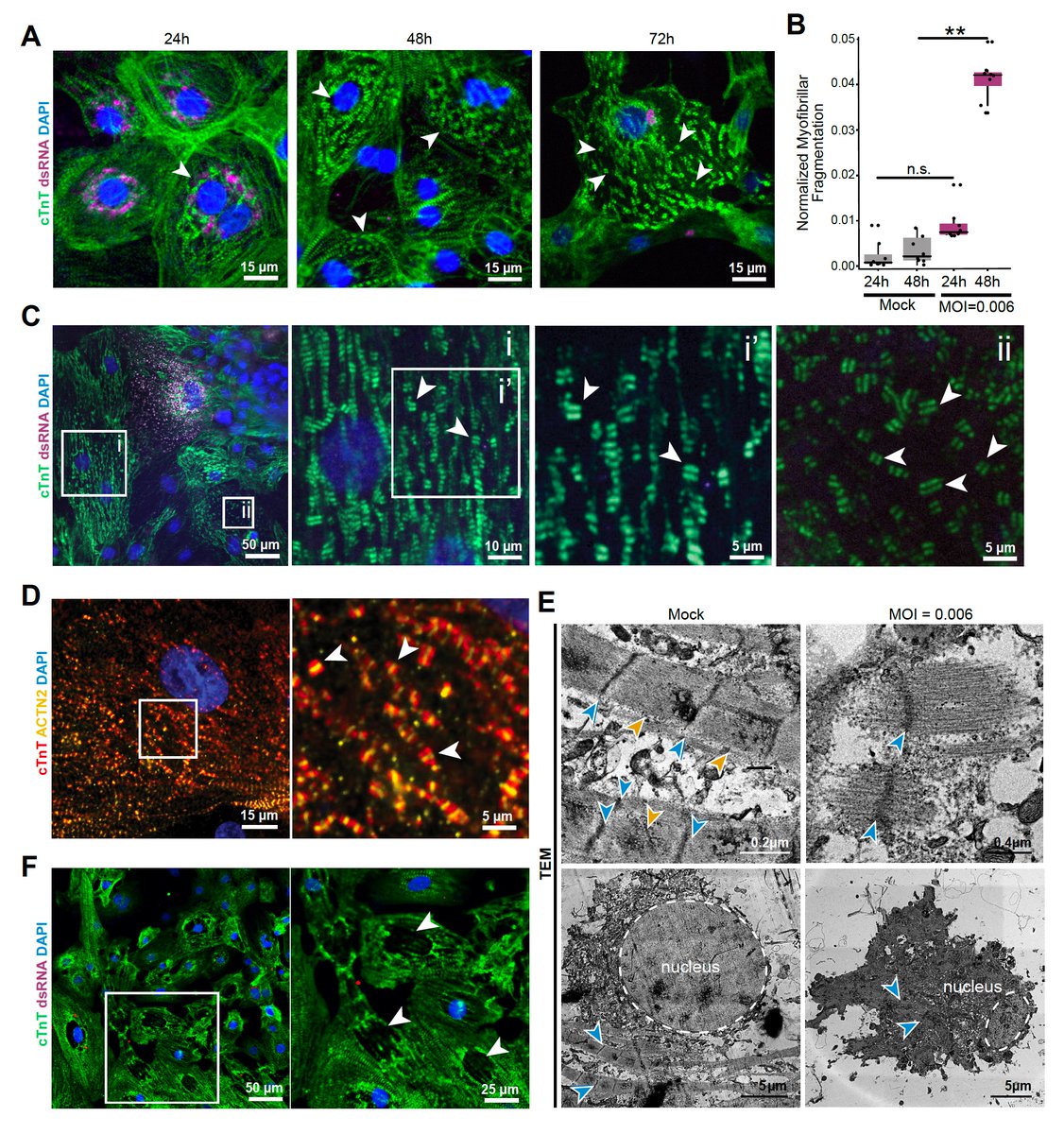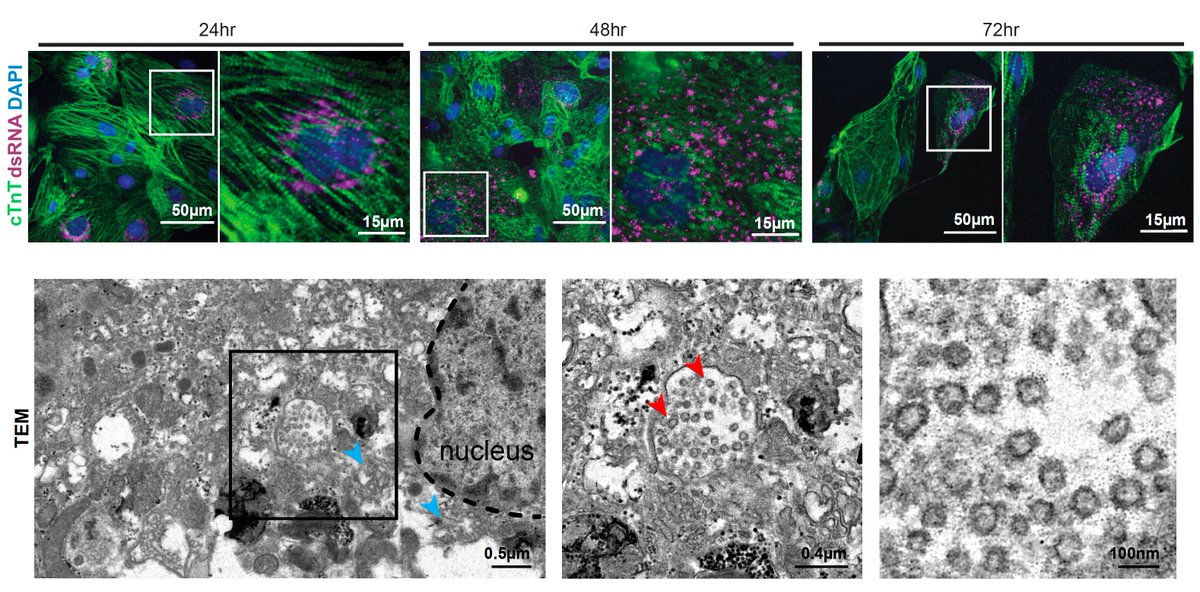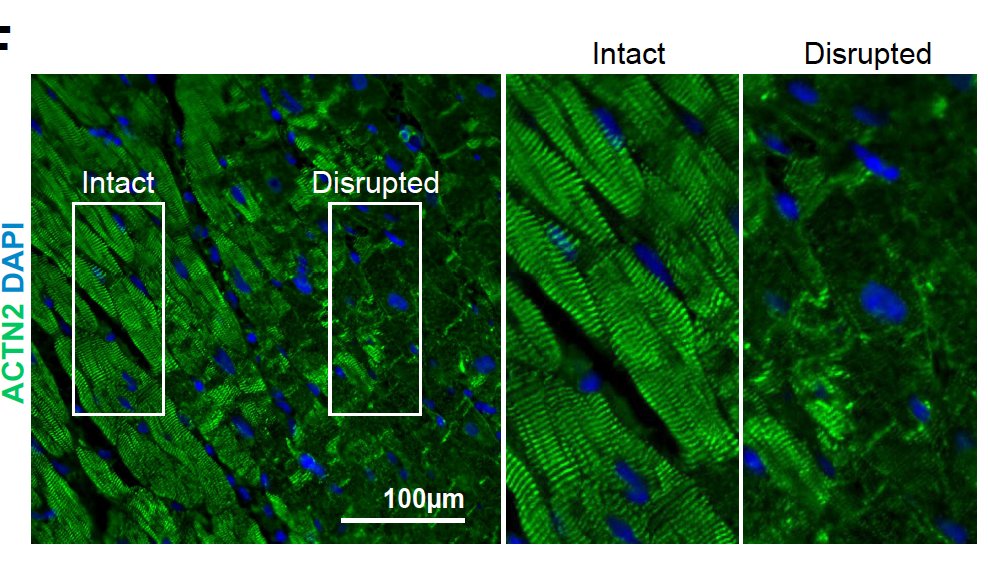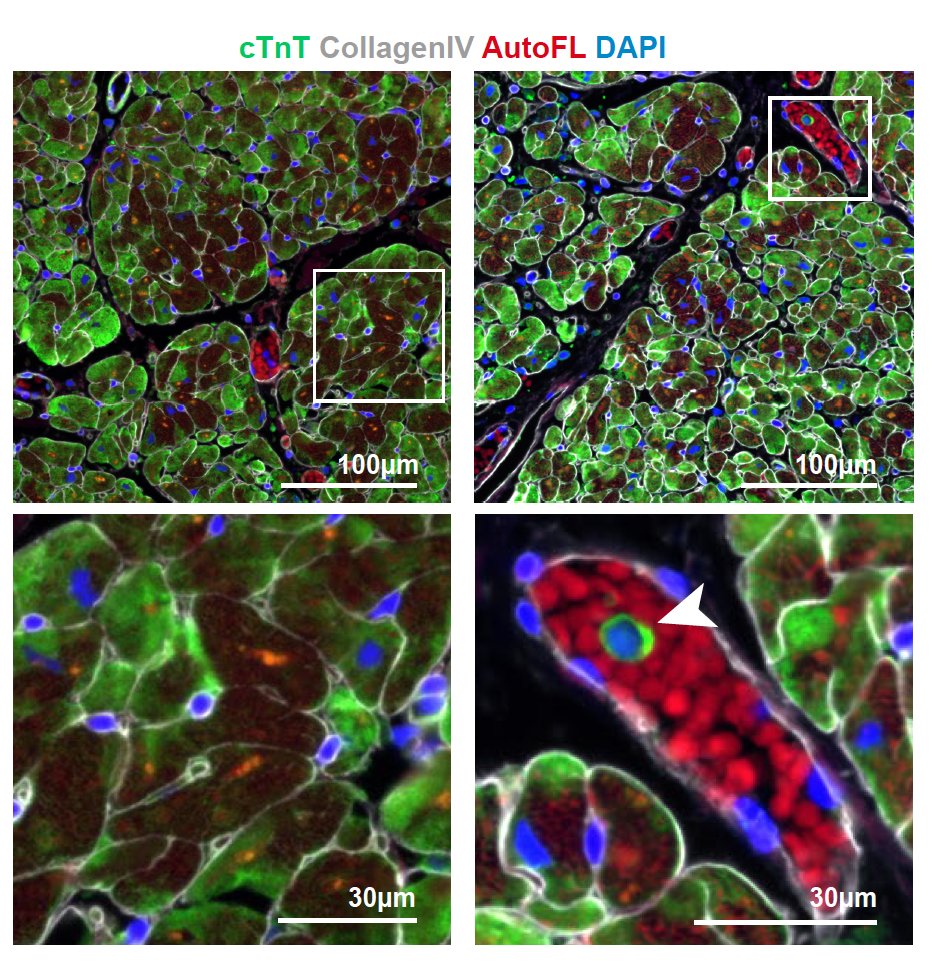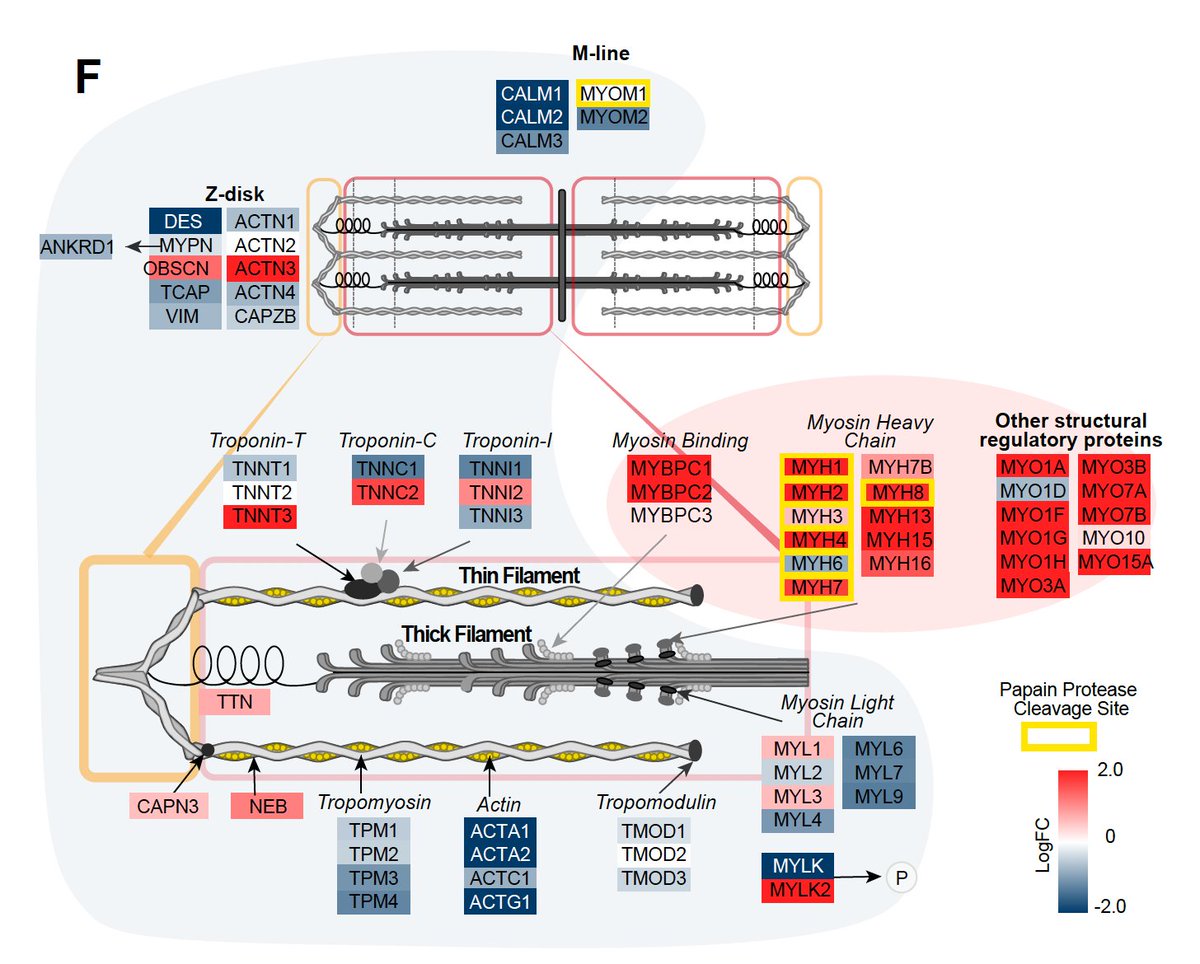Initially #SARSCoV2 was considered a respiratory virus.
New @GladstoneInst findings in both iPSC-> heart cells & autopsy indicate it& #39;s a heart virus, w/ a distinct pattern:
—myofibrillar fragmentation
—loss of nuclear DNA
—"complete dissolution of the contractile machinery"
1/
New @GladstoneInst findings in both iPSC-> heart cells & autopsy indicate it& #39;s a heart virus, w/ a distinct pattern:
—myofibrillar fragmentation
—loss of nuclear DNA
—"complete dissolution of the contractile machinery"
1/
The preprint https://www.biorxiv.org/content/10.1101/2020.08.25.265561v1">https://www.biorxiv.org/content/1... and @GladstoneInst summary
https://gladstone.org/news/new-insights-how-covid-19-causes-heart-damage
This">https://gladstone.org/news/new-... doesn& #39;t require intracellular infection for the toxic effects. Interruption of specific transcription speculated, cleavage of A-band 2/
https://gladstone.org/news/new-insights-how-covid-19-causes-heart-damage
This">https://gladstone.org/news/new-... doesn& #39;t require intracellular infection for the toxic effects. Interruption of specific transcription speculated, cleavage of A-band 2/
Impressive work by @ToddMcDevitt and team @Juan_PerBer @SarahJRockwood @TheOttLab @Camille_Rosa15 @KSerahSera @davidajoy8 @ramadass_gokul @AnaSilva_illust @willfff  https://abs.twimg.com/emoji/v2/... draggable="false" alt="🙏" title="Folded hands" aria-label="Emoji: Folded hands"> /3
https://abs.twimg.com/emoji/v2/... draggable="false" alt="🙏" title="Folded hands" aria-label="Emoji: Folded hands"> /3
Heart involvement w/ covid-19 is grossly understudied.
For example, we know from 4 series of lung CT scans in people with asymptomatic infections that 50% have abnormalities consistent w/ covid.
But no such studies reported on the heart
For example, we know from 4 series of lung CT scans in people with asymptomatic infections that 50% have abnormalities consistent w/ covid.
But no such studies reported on the heart

 Read on Twitter
Read on Twitter